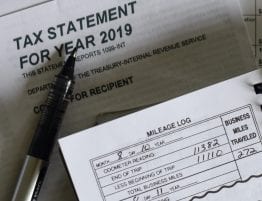
A tax haven is a country, state or region that charges substantially low or negligible taxes to corporations and individuals. Mostly used by the wealthy and large corporations, tax havens reduce the tax liability of a person or a business in the country in which they reside or operate. On the other hand, a tax shelter is a legal means to reduce tax liability using investment vehicles such as 401(k), municipal bonds, stocks, etc. Unlike tax havens that are typically used by the wealthy, tax shelters are usually used by taxpayers of all income groups.
Tax Havens
Using a tax haven results in tax evasion if it is not reported on a U.S. tax return. It is illegal for taxpayers to hold their assets and income in offshore tax havens in order to evade taxes in the U.S. For example, if a taxpayer opens a bank account in a tax haven country and operates it while living in the U.S., and it is not reported on his/her tax return, it is considered tax evasion.
Abusive offshore tax evasion schemes
Such schemes often use tax havens to conduct illegal tax activities in the U.S. Many innocent taxpayers fall victim to such schemes as they promise low to zero taxes among other benefits. The attraction of saving big money in taxes encourages people to use tax havens. They may use simple tax evasion methods such as personally travelling to a tax haven to deposit unreported cash or develop complex tax evasion schemes that involve creating partnerships, trusts, nominees, etc.
Though many use tax havens for tax evasion, simply having a bank account in a tax haven country or territory is not illegal as long as it is reported to the IRS and fulfills U.S. tax requirements. Large multinational corporations often legally reduce their tax liability by using tax havens though some may resort to exploiting the loopholes in the tax code and creating complex schemes in order to reduce their tax liability in the U.S.
Offshore tax havens are often open to negotiation regarding the taxes they charge to those that bring large investments. This encourages corporations and individuals from high tax countries to shift their investments to tax havens.
Another attraction tax havens offer is anonymity. Many tax havens hide the true identity of the owner of the assets thereby assisting in tax evasion, money laundering and other financial crimes.
Punishment for tax evasion
Under the Internal Revenue Code § 7201, Attempt to evade or defeat tax – any person who willfully attempts to evade or defeat tax shall be fined up to $100,000 ($500,000 in the case of a corporation), or imprisoned up to 5 years, or both. That person will also pay the cost of prosecution in addition to other penalties provided by law.
Tax Shelters
Tax shelters are legal vehicles a taxpayer can use in order to reduce their tax liability. Investing in legitimate financial schemes such as equity funds, bonds, retirement funds, etc. are some of the legal ways taxpayers use to pay less in taxes. We are all familiar with tax deductions and credits on a return, which are legal tax reduction methods most taxpayers use at the time of filing.
Investment strategies that make use of multiple legitimate tax shelters help grow money and limit taxes. It is a part of wise financial planning where assets and investments can be managed to provide maximum tax benefit. For example, investing in stocks or mutual funds for the long-term reduces the current tax liability of a taxpayer.
Conclusion
While tax havens have a bad reputation due to illegal uses, it is not illegal to hold bank accounts or assets in a foreign country with lower taxes as long as it is reported accurately to the IRS. Just like tax havens can be abused, so can tax shelters. Inaccurate reporting of income and assets to the IRS whether they are in a tax haven or a tax shelter attracts penalty. If for any reason, a taxpayer had used a tax haven or a tax shelter to underreported income, they may consult a tax attorney or an enrolled agent at the earliest to gain back compliance.








